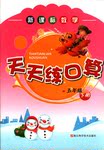题目内容
【题目】 Stephen Hawking was both one of the world's most famous scientists and most famous disabled people. His life was a juxtaposition of sparkling intellect and failing body. Prof Hawking was diagnosed with a rare form of motor neurone(运动神经元) diseases when he was 21.
The nerves that controlled his muscles were failing and he became trapped in his body, but his mind was still free. He reached the height of his field while being a wheelchair user.
Professor Hawking certainly raised awareness of motor neurone diseases. One of his major contributions to disability in general was simply being visible---often at a time when disabled voices were missing from popular culture. He made small-screen appearances on The Simpsons, Star Trek and The Big Bang Theory. His life was dramatised (将…改成剧本)by the BBC and in the film The Theory of Everything.
Steve Bell, from the MND association, said: "He was probably the most famous person with a physical disability and it almost normalises it to see his absolute genius. I think it affected a lot of people, seeing he's more than a trapped body. The public's view of disability has changed.
But Prof Hawking’s life was exceptional. He lived five decades longer than doctors expected. Many others with motor neurone diseases die in the years after diagnosis. He was a theoretical physicist. His laboratory was in the mind; his scientific equipment was mathematics.
Prof Hawking was able to continue to pursue his career in a way that would have been much harder in other scientific disciplines and impossible in many other professions. It remains an open question how much he would have achieved if he was disabled from birth rather than after graduating with a first at Oxford. Today, disabled people are more than twice as likely to be unemployed than people without disability. Prof Hawking 's only advice on disability was to focus on what could be achieved. "My advice to other disabled people would be, concentrate on things your disability doesn’t prevent you doing well, and don 't regret the things it interferes with. Don't be disabled in spirit, as well as physically,” he said in an interview with the New York Times.
【1】What does the underlined word juxtaposition in Paragraph 1 mean?
A.Combination.B.Trouble.
C.Difficulty.D.Mess.
【2】How did Hawking raise awareness of motor neurone diseases?
A.By trying not to get trapped by the disease.
B.By making the voice of the disabled heard.
C.By making people be used to the small screen.
D.By working for the BBC and film companies.
【3】What did Steve Bell think of Hawking?
A.He was the most well-known person.
B.He was affected greatly by many people.
C.He changed people's view of disabled people.
D.His physical disability affected his mind.
【4】What's Hawking’ s tip to disabled people?
A.Try to find a job and don't be unemployed.
B.Don't ignore your health.
C.Stick to the goals that you can reach.
D.Don’t think you are physically disabled.
【答案】
【1】A
【2】B
【3】C
【4】C
【解析】
这是一篇记叙文。介绍了著名的科学家史蒂芬·霍金。他从20岁的时候就得了很严重的病,医生说他只能活两年多,但是他迹般地活了下来。随后凭借他强的毅力与聪明才智在科学界获得了一个又一个的辉煌。
【1】词义猜测题。由第二段中的He reached the height of his field while being a wheelchair user(他是一个使用轮椅的残疾人,同时还达到了他所从事领域的最高高度)可知,霍金是聪明才智与无法行动的身体的结合。A. Combination组合;B. Trouble麻烦;C. Difficulty困难;D. Mess一团糟。故选A。
【2】推理判断题。由文中的One of his major contributions to disability in general was simply being visible---often at a time when disabled voices were missing from popular culture(他对残疾的主要贡献之一就是简单地被注意到---曾有一段时间残疾人的声音在流行文化中是消失的)可知,霍金通过让残疾人的声音被听到来提高大家对运动神经元疾病的意识。故选B。
【3】细节理解题。由题干中的Steve Bell可将本题答案定位在第四段。由其中的I think it affected a lot of people, seeing he's more than a trapped body. The public's view of disability has changed(我认为它影响了很多人,人们看霍金不仅仅看到他是残疾人。大众对于残疾人的看法改变了)可知,Steve Bell认为霍金改变了人们对残疾人的看法。故选C。
【4】细节理解题。由最后一段中的Prof Hawking’s only advice on disability was to focus on what could be achieved(霍金教授对残疾人唯一的忠告就是集中在能达到的事情上)可知,霍金建议残疾人坚持你能达到的目标。故选C。

 天天练口算系列答案
天天练口算系列答案